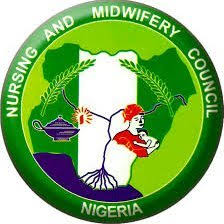The fight to ensure that all Nigerian children are covered under the national immunisation programme of the Federal Government may be a tall dream, according to investigators who visited some health centres in Lagos and Kwara states.
Mothers, health workers and experts have expressed disappointment and mixed feelings concerning how vaccines were being delivered and their availability to children in the country, whose figure is put at 40 million.
The correspondent, who had to disguise as a parent in search of a centre to obtain vaccination for herself and her baby, got the shock of her life when she visited a primary health centre in Ogbondoroko, a village in the outskirts of Ilorin, the Kwara State capital.
Though located in a village whose residents are mostly farmers, petty traders and cattle rearers, the health centre, painted a bright yellow and green, had just been renovated and one would expect that the services provided should be at par with its physical outlook.
But when our correspondent asked if she could get her baby immunised at the centre, the nurse on duty simply told her that she would have to wait for another month, as the clinic had just finished a round of immunisation exercise.
“You should have come last Friday. We do it once every month. That is the only time you will get it here. There is no consistent power supply here. So, we cannot afford to keep the vaccines in the proper condition for long; that is why you won’t get it on any other day,” the nurse said casually.
Asked what measures were being taken to ensure that babies born before the earmarked day were vaccinated, one of the health workers, who spoke on condition of anonymity because she was not authorised to speak, said those who could not wait had to take their babies to health centres in neigbouring villages.
As the correspondent was leaving, the attendant also advised her concerning what to expect during the next visit.
In the native Yoruba language, she said, “You won’t pay much, it is almost free here; you will pay like N100 for each vaccine your baby gets. Again, we are trying to manage syringe for injections here. We don’t have enough. So, if your baby is going to take more than one vaccine, you will buy a syringe.”
When our correspondent asked if she could take the yellow fever vaccine at the centre, the nurse said, “We only have Petavalent and OPV ( oral polio vaccine).We don’t have yellow fever vaccine here, as nobody really requests for it.”
One of the mothers who spoke to our correspondent also said she took the other vaccines that were lacking at the health centre in the community when she had the opportunity to go trading in neigbouring villages.
She said, “Any one that they mark that they do not have on the card, I will note it and take it with me on the market day in Afon, the next village to us. For the one they do not have, we (mothers) that had children around the same time organise ourselves and go to Child/Maternity Centre in Balogun-Fulani, Ilorin, where they have all the vaccines. We will stay for two days. We get them immunised on the one hand, and trade on the other hand.”
Mothers in the cities are also not exempted from this scarcity of some particular vaccines. Investigations by our correspondent revealed that some health centres in Lagos State have run out of Meningococcal vaccine.
A mother who spoke with our correspondent at the Iloro Health Centre, Agege, Lagos, said she had just been referred to the Lagos University Teaching Hospital, Idi-Araba, to get her baby vaccinated.
She said, “I have been to four health centres in the past three months to get the meningitis immunisation for my baby, but none of them has the vaccine.”
She also called on government to quickly address the scarcity of some vaccines on the immunisation schedule to help mothers complete the dosage as scheduled.
The mother also called on government to stop all levies attached to immunisation to encourage more mothers to come to health centres to immunise their babies.
Agbeja said, “Some mothers will rather use local agbo (herbal concoction) of N20, which they believe is potent, than pay N70 for each vaccine they give their babies at the health centres. We complained, the state government got wind of it and pasted phone numbers on the hospital’s walls for mothers to call and report any official who demands payment from patients.
“They’ve reduced it to N50 now; they even give receipt for it. Government should please look into this and make it totally free.”
It is not a strange thing for mothers to go from one centre to another, trying to get their children vaccinated in many communities in Nigeria. In fact, the farther you are to the city, the more difficult it is for a baby to complete the vaccine schedule for children.
Incidents of vaccine shortage, scarcity and lack of consumables for its delivery occur every day in Nigeria and this continues to pose major challenges to the delivery of childhood vaccines in the country.
It continues to witness outbreaks of diseases that children had been vaccinated against. That is why Nigeria, Pakistan and Afghanistan are the only three countries in the world that still record polio infections.
According to reports, no fewer than 4,000 children were infected and 36 killed in the recent measles outbreak in 12 states in northern part of Nigeria, including Niger, Kebbi, Katsina and Bauchi states. Kaduna alone recorded 500 measles infections in children, according to the Federal Ministry of Health.
Though the national routine immunisation programme has eight vaccines on its schedule, which are BCG,DPT ( Dipheteria-pertusis-tetanus), Hib (Haemophilius Influenza type B, Hepatitis B, oral polio, measles, yellow fever, meningiccocal, Human Papilloma vaccines, children are still dying of these preventable diseases.
The importance of vaccination in the reduction of communicable childhood diseases cannot be overemphasised. A professor of virology, Oyewole Tomori, defined a vaccine as a biological preparation that improves immunity to a particular disease. It stimulates the body’s immune system to recognise some diseases as foreign and destroy it.
Tomori, who is also the National President, Nigerian Academy of Science, stated that Nigerian leaders had only been paying lip service to issues of health — a situation that, he noted, was responsible for the “mediocre performance” in health care delivery and a near absence of accountability in national programmes of government for her citizens. “These are the factors responsible for the irregularities in vaccine coverage in the country,” Tomori said.
He said it was shameful that Nigeria relied more on international funding and pressure before it could care for her children.
Tomori noted that government had not charted a way to ensure the eradication of polio until Bill Gates Foundation, the World Health Organisation and the United Nations Children’s Fund intervened.
“I do not think it is Bill Gates, WHO or UNICEF that should teach us how to eradicate polio or take care of our children, because they were not there when we were having them. When flooding occurred last year, the President rose up to raise money for the cause. What has he done for polio? Why should we wait for Gates or Rotary International to bring money or rate our vaccine coverage before we do something?” he asked.
Tomori harped on the fact that Nigeria was drawing the world back in polio eradication and charged government to proffer home-based solution to insecurity and the perceived increasing resistance to vaccination, especially in the northern Nigeria.
He is of the view that government should embark on a massive anti-polio lobby campaign to prevent the recurrence of the recent killings of nine polio vaccinators and three doctors in Kano.
“If we are not careful, it will escalate. Anybody has a right to oppose vaccine uptake for their child. Government must engage them in the North; lobby them before it escalates. You can shout from the rooftop in Aso Rock, it is the people that will decide whether to vaccinate their children or not.
“Nigeria is drawing the world back in polio eradication; it is now a global problem because as long as one child is infected, others in the world are at risk,” he said.
Tomori explained that uneven funding of some vaccines, year in, year out, could affect availability and also result in shortage of some.
He said, “We should expect that there will be measles outbreak in 2013 because the government did not talk about it in 2012. Its vaccination rate has dropped. The issue of which vaccine gets which funding has been politicised.”
The renowned virologist said that apart from availability, another factor that has been understated in vaccination programmes and a reason why the nation’s children get infected and even die of diseases they have been vaccinated against was the handling of vaccines.
Tomori said, “A vaccine is effective when properly used at the right time and the right way. The rules of hygiene must be strictly adhered to. Most of the adverse effects of vaccines we see are actually due to poor handling, not as a result of taking the vaccine.
He said further, “The challenges facing vaccine delivery are multifaceted. Now, 66 million doses of measles vaccines have been provided to curtail further outbreaks, whether the syringes that will be used to deliver it will be there is what I do not know.”
To move from the 69 per cent coverage rate to the expected 80 per cent, which the nation used to have, Tomori charged government at all levels to engage all its population and put in place high quality health care delivery.
He stated, “We must recognise that every Nigerian has a role to play in protecting our children and that population is not a major challenge. China and India, which are 10 times much larger than Nigeria, have eradicated polio.”
Also, the Minister of Health, Prof. Onyebuchi Chukwu, at a press briefing on Monday, stated that the country, through the health ministry, was working tirelessly towards re-invigorating the delivery and availability of vaccines for diseases such as the yellow fever, polio and measles across the country, especially in the North, to avert outbreaks.
Chukwu, however, noted that insecurity in the North was a major challenge affecting all sectors in the region and not just health. He said the government would take care of the situation by engaging all stakeholders, especially in endemic areas.
He said, “The President is beefing up all security measures in the North; we hope this will also affect the health sector. So, with time, health workers will be safer to discharge their duties. We are working towards improving health care delivery in the North.”
BY BUKOLA ADEBAYO
The Punch




